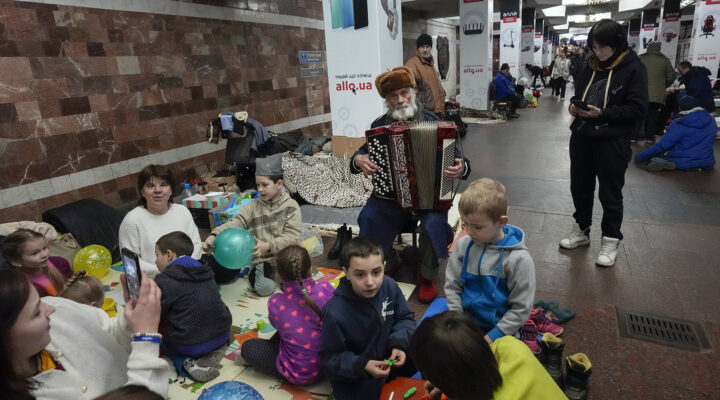The stories, morning after morning, of the horrific war in Ukraine overwhelm us. For self-defense, I look away at something else in the news. Yet in the back of my mind the images still play, pictures of destruction, death.
We thought it couldn’t happen again in Europe after WWII, but here it is, happening again. I hear the reasonable Western words about political entanglements, but how can we simply watch the poorest country in Europe stand alone against the biggest bully?

Bob Ellis
The truth stares us in the face again: We humans don’t actually get any better, although we may think we do. Two steps forward, one step back; one step forward, two back.
And the bombs fall again.
We are frail creatures of dust, always returning to dust. Maybe for a moment, here and there, living up to our imago Dei. Yet too quickly slithering back to destruction.
I read in the Washington Post a few weeks ago something about the war that has stuck with me in a good way, offering a haunting hopefulness in this Lenten season of death.
The annual Kharkiv Music Festival couldn’t be held this year in the city where 700,000 have fled the bombing. So organizers instead offered a “Concert Between Explosions” in a subway turned bomb shelter. Five musicians played beautiful music on their stringed instruments: Bach, Dvorak, Ukrainian folk songs, and their national anthem, in the midst of unimaginable suffering.
“For a few subterranean minutes in the middle of chaos, life returned: humanity, beauty, art — a few moments of joy.”
For a few subterranean minutes in the middle of chaos, life returned: humanity, beauty, art — a few moments of joy.
In another crowded bomb shelter in Kyiv, some adults checked phone updates and talked, while mothers shushed crying babies. A 7-year-old girl, with disheveled blond hair and radiant face, looked around shyly. At the prompting of a grownup, she tentatively began to sing. Quickly finding her voice, she confidently offered the beautiful music of “Let It Go” from Frozen.
The underground space was instantly silent, all eyes and ears attuned to her. Little Amelia gave herself fully to the music, becoming a precious gift to the huddled victims of war. For a few minutes, they were set free by her celebration of life, captives of joy in a bomb shelter:
Let it go, let it go
You’ll never see me cry
Here I stand and here I stay
Let the storm rage on
My power flurries through the air into the ground . . .
Let it go, let it go
When I’ll rise like the break of dawn.
So the little Ukrainian girl courageously sang in Russian as bombs fell above.
And for an eternal moment, beauty made the world whole again. Hope came alive in a cave.
Bob Ellis is former dean of Logsdon School of Theology at Hardin-Simmons University. This post originally appeared on his personal blog, An Ever-flowing Stream.
Related articles:
In Ukraine, a 40-member church helps 7,000 people flee war
As a pastor serves bread to the elderly in Ukraine, he prays to retain his humanity


